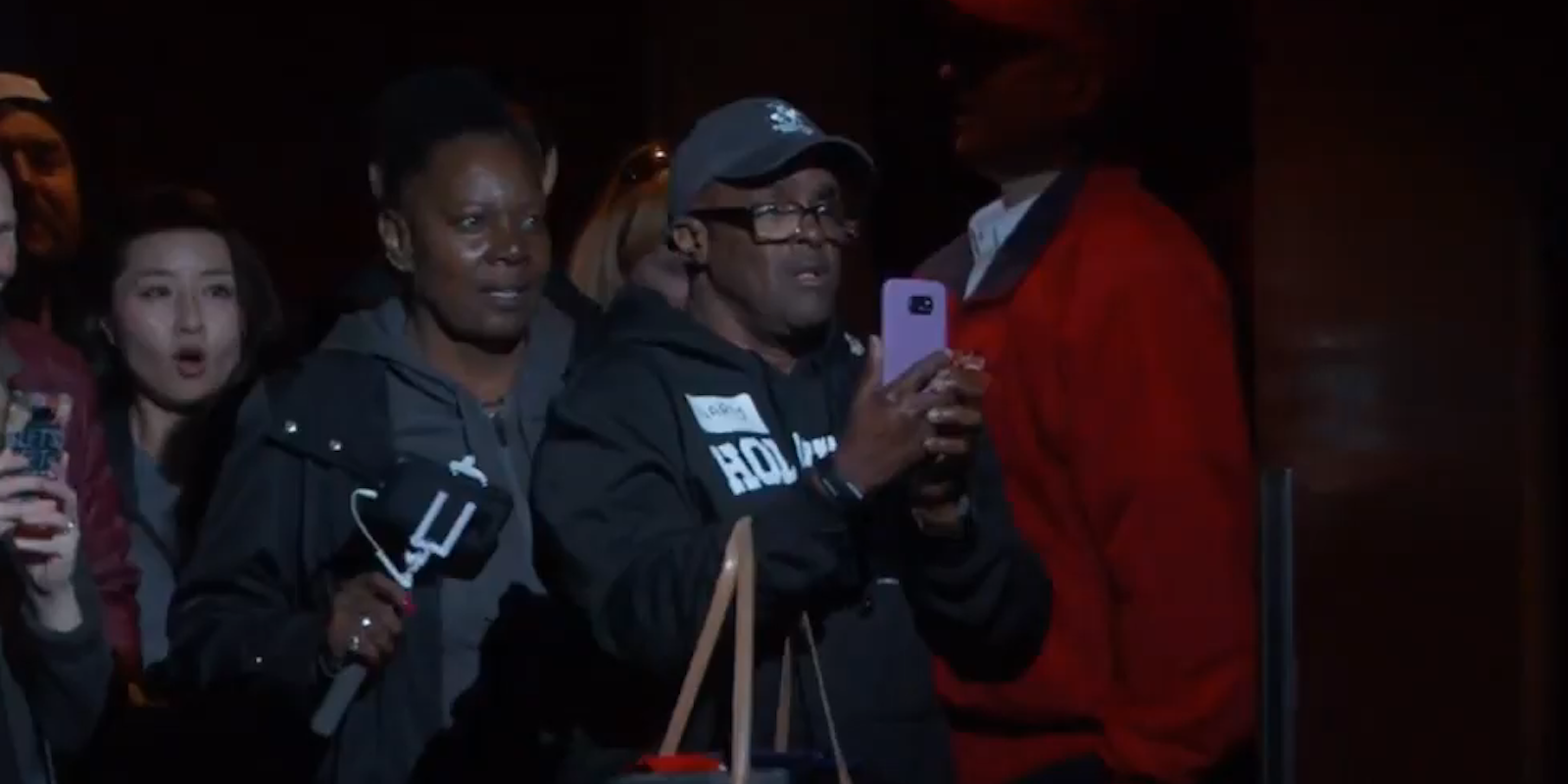Opinion
Even before details of Gary Alan Coe’s life and criminal record were presented for the internet, a tweet beseeched us not to look too far into his past. Don’t ruin the moment.
And that’s what it was when Coe, better known as Gary from Chicago, became a Twitter celebrity during Sunday night’s Oscars. By Tuesday, his past was news. It was reported that Coe had been out of prison for just three days when he appeared on the telecast. He’d spent 20 years in jail under California’s three strikes law, after a petty theft in 1996. He had a prior felony conviction for attempted rape in 1975, and priors for robbery and burglary. In 2012, a California ballot measure, Proposition 36, changed the three strikes law, and Coe was eligible for resentencing earlier this year.
We liked Coe because he fit the everyman mold: He didn’t know how to use his phone, and held his fiancee’s purse. He wore a “Hollywood” sweatshirt. He got excited by celebrities (but ignored the white ones, as Jimmy Kimmel noted). His fiancee Vickie Vines, whom he met while in prison, got to meet Denzel Washington and became part of a Ryan Gosling meme. Given his timeline, that experience must have been surreal. Did he even know what a Ryan Gosling is?
Now, this person whom we enjoyed making a meme was real; we had to adjust, and judge a person we don’t know. As the Daily Dot’s Jay Hathaway pointed out after Ken Bone’s fall: “The problem is that these memes—these caricatures onto whom we project our hopes, fears, jokes, and assumptions—are people.”
Bone, the man who became a meme after asking a question at the second presidential debate, swirled around in his Twitter fame for a week before his slimy Reddit history was reproduced. Bone apologized, but he’s still trying to stay afloat on his 15 minutes. We saw something relatable in Candace Payne, who became known as Chewbacca Mom, after she posted a video of her laughing maniacally while wearing a Star Wars mask. Her viral ascent was quick and lucrative, which brought up questions about visibility and race. A parallel could be drawn with Danielle Bregoli, the rebellious teen who challenged “Cash me ousside” on Dr. Phil and became a meme. She’s still experiencing the half-life of internet fame and its real consequences, but she’s been able to cash in on branding.
There is an economy for this kind of celebrity, even if they’ve now become caricatures; even if we now roll our eyes at the mention of the human memes we retweeted and laughed at. It’s easy to make people into content: Kellyanne Conway kneeling on the Oval Office couch, obscure rappers, a white guy blinking are all fair game.
But then there’s the idea of the human meme, which will always be at odds with being a real person. The web was full of people trashing the Oscars for having Coe in attendance (shout out to Casey Affleck). The URL for Page Six’s updated story still infers that he served 22 years for attempted rape. One outlet posted, then later retracted, a story that suggested Coe let us all down, as if it were his responsibility to unite us, or be the “hero we need right now”—a phrase we see so often online it’s become meaningless. Others are calling out the harsh sentencing Coe received, or the ingrained racial bias of the justice system.
His ascent is different than Bone’s and Payne’s. He was heaved out of two decades of imprisonment and into a global spotlight. He wasn’t actively pursuing virality, but we projected that on him, because at the moment he was a funny guy on TV who walked through the door first, not a complex person with history and flaws, who now must start adjusting to life outside—and in a new political frame.
And this cycle of viral fame is all about moments, something Coe might still be coming to terms with. He told the Chicago Tribune: “Am I changed person? Yes. Do I have regrets? Hell yeah. But I can’t be chained to the past.”

